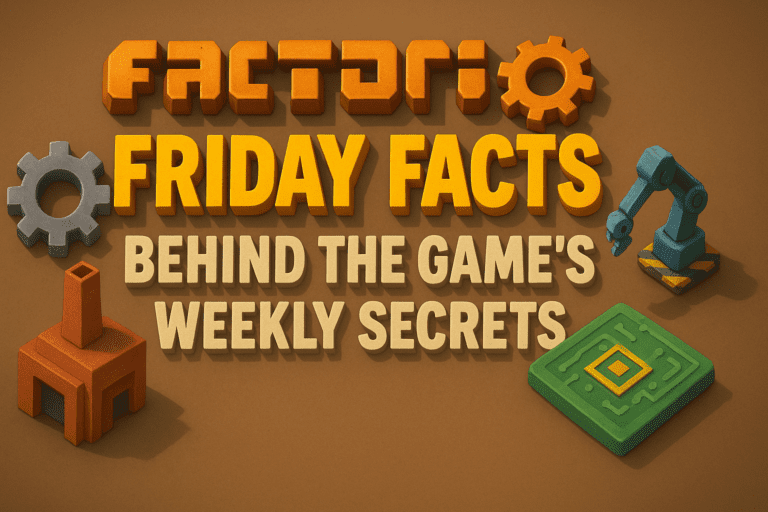
Hope you are fresh and fine my brother/sister!
Ever hit refresh, and refresh, and refresh again, only to be met with a blank screen or a cryptic error message? If you’re an AI enthusiast, a student burning the midnight oil, or just someone who occasionally uses ChatGPT for a quick laugh, chances are you’ve felt that familiar pang of dread: “Is ChatGPT down… again?” It’s more than just an inconvenience; it’s a moment that sends ripples through the digital world, sparking immediate curiosity, frustration, and, let’s be honest, a whole lot of hilarious internet memes.
You might think, “It’s just a website,” but when a tool as ingrained in our daily lives as this powerful AI chatbot goes dark, it becomes a global event. From frantic searches for “Is ChatGPT down?” to a tidal wave of user complaints flooding social media, the downtime of this revolutionary platform is never a quiet affair. In this long-form dive, we’re not just confirming its status; we’re unraveling the entire saga. We’ll explore the “ChatGPT down latest news and public reaction,” peel back the layers of speculation, dive into the internet’s wild response, and look at what it all means for the future of AI. Trust us, you won’t want to miss a single byte of this story!
The AI World’s Unexpected Pause
Imagine millions of people globally, all at once, hitting a wall. That’s precisely what happens when ChatGPT, the darling of the AI realm, decides to take an unannounced break. The usual hum of creative writing, coding assistance, and rapid-fire answers suddenly ceases, replaced by an eerie digital silence. This isn’t just a fleeting moment; it’s a widespread phenomenon that instantly becomes the talk of the town, dominating online conversations and making headlines. When an AI chatbot of this magnitude experiences an outage, it’s a big deal. It underscores our increasing reliance on these intelligent systems for everything from brainstorming ideas to daily tasks. The unexpected pause serves as a stark reminder of the intricate web of technology that powers our modern lives, and how a single point of failure can disrupt the routines of countless individuals.
What’s Happening? The Current Pulse of the Outage
When ChatGPT goes quiet, the first question everyone types into Google is usually the same: “Is ChatGPT down?” The answer, often, is a resounding “yes,” and the internet immediately springs into action, collectively trying to figure out what’s going on.
Is ChatGPT down for everyone?
One of the initial anxieties during an outage is whether the problem is isolated to your connection or if it’s a global event. More often than not, when ChatGPT is truly down, it’s affecting users across different continents and networks. You’ll quickly see the same frantic messages popping up on Twitter (now X), Reddit, and other forums from users worldwide, confirming it’s not just you. This collective experience of being cut off from a popular tool fosters a unique sense of digital camaraderie, as millions share their temporary technological limbo. Checking global server status trackers becomes a reflex for many, providing real-time insights into the scope of the problem.
Why is ChatGPT down?
The specific reasons why ChatGPT experiences downtime can vary, but they generally fall into a few categories. Sometimes, it’s planned maintenance, though unannounced outages are far more common and dramatic. Often, the immense popularity of the platform itself can be its undoing. Imagine millions of users trying to access the service simultaneously; this can lead to overwhelming traffic, causing the servers to buckle under the pressure. This is a common form of tech glitches in highly popular online services. Other times, it could be a bug in the code, a network issue, or even a problem with the infrastructure of OpenAI, the company behind ChatGPT. The truth is, pinpointing the exact cause in real-time can be tricky for users, which often leads to a flurry of speculation and theories.
How long is ChatGPT usually down for?
This is the million-dollar question for anyone mid-sentence with the AI. The duration of online outages for ChatGPT has varied historically. Some have been brief blips, lasting only a few minutes, while others have stretched on for hours, much to the dismay of its dedicated user base. There isn’t a fixed pattern, which adds to the suspense and frustration. Users often refresh their screens compulsively, hoping to catch the moment the service flickers back to life. Past experiences show that while brief downtimes are common, extended outages are less frequent but leave a more significant mark on the public reaction.
For further reading please visit.
- Coco Gauff in 2025: The Tennis Prodigy Changing the Game.
- He Missed His Hajj Flight—What Happened Next Shocked Everyone (2025 Viral Story).
The Internet Explodes: Public Reaction & Viral Moments
When major platforms like ChatGPT go offline, the internet doesn’t just sit idly by. It erupts! The collective experience of digital disconnection quickly transforms into a vibrant, often hilarious, online phenomenon. The “ChatGPT down latest news and public reaction” isn’t just about official announcements; it’s about the real, raw, and often very funny ways people cope.
Social media buzz
Within minutes of an outage, platforms like X (formerly Twitter), Facebook, Instagram, and Reddit light up like Christmas trees. The social media buzz is immediate and overwhelming. Users, cut off from their AI assistant, rush to these platforms to confirm if others are experiencing the same issue. Hashtags like #ChatGPTDown, #AIChatbot, and even #MyLifeIsOver (jokingly, of course) start trending rapidly. You’ll see a mix of frustration, humor, and genuine curiosity as people share their woes, ask for updates, and, most importantly, create content. This rapid-fire exchange of experiences forms a crucial part of the public reaction, showcasing the immediate and tangible impact on millions.
User complaints and frustrations
While the humor is abundant, so are the genuine user complaints. For many, ChatGPT isn’t just a toy; it’s a vital tool for work, study, or creative projects. Students might be in the middle of writing an essay, developers debugging code, or content creators brainstorming ideas. When the AI chatbot suddenly becomes unresponsive, it can lead to real deadlines missed and productivity halted. You’ll see posts ranging from mild annoyance (“Well, there goes my afternoon!”) to more urgent cries for help (“My assignment is due in an hour!”). These frustrations highlight how deeply integrated such major platforms have become into our daily workflows. It’s a powerful reminder of our reliance on these digital assistants.
Are there any funny memes about ChatGPT being down?
Absolutely! This is where the internet truly shines during an outage. The moment ChatGPT goes offline, the race is on to create the most relatable and hilarious internet memes. These viral images, videos, and jokes often perfectly capture the shared feeling of digital helplessness and the absurdity of being so dependent on a piece of software.
You’ll see memes depicting:
- Humans returning to pen and paper: A tired-looking person with a quill and parchment, lamenting the good old days.
- ChatGPT as a sleepy or rebellious robot: Images of the AI literally taking a nap or refusing to work.
- Users staring blankly at their screens: A universal symbol of tech frustration.
- Comparisons to real-world breakdowns: Such as a car sputtering out on the highway.
These internet memes not only provide much-needed comic relief but also serve as a form of collective therapy, allowing users to laugh at their shared predicament. They are a testament to the internet’s ability to turn frustration into viral entertainment, making the downtime almost as famous as the active service itself. The social media buzz fueled by these creative explosions keeps the conversation going long after the initial outrage subsides.
More Than Just Down: The Wider Impact & Speculation
An outage of a service as impactful as ChatGPT is rarely just about technical issues. It becomes a litmus test for our digital reliance, a catalyst for widespread speculation, and a fascinating case study in how the digital world reacts to the sudden absence of a cornerstone technology. The “ChatGPT down latest news and public reaction” extends far beyond mere service alerts; it delves into the very fabric of our tech-driven lives.
Trending topic
When ChatGPT falters, it doesn’t just trend in tech circles; it becomes a global trending topic across all major social media platforms and news aggregators. Why? Because it touches so many different facets of our lives. From students struggling with homework to professionals losing their virtual assistant, the impact is broad. This wide reach ensures that the downtime is not just news, but a cultural moment. The sheer volume of people searching for “Is ChatGPT down” or “ChatGPT not working” pushes it to the top of trending lists, sparking even more conversation and curiosity from those who might not even use the service directly. It’s a clear indicator of how deeply integrated this particular AI chatbot has become into the global consciousness.
The AI community’s chatter
Beyond the general public, the AI community itself goes into overdrive during an outage. Developers, researchers, and ethicists all tune in, offering their insights, theories, and often, their frustrations. Discussions pop up on specialized forums, academic groups, and developer communities. Questions arise about the robustness of large language models (LLMs), the scalability of OpenAI‘s infrastructure, and the potential implications of centralized AI services. This internal AI community dialogue often provides the first hints at the underlying causes of tech glitches and future improvements, adding another layer of depth to the “ChatGPT down latest news” segment. They’re often the first to analyze the server status data and speculate on the intricacies of the tech drama unfolding.
Is this a big deal for AI?
For many, a ChatGPT outage isn’t just about missing a few prompts; it raises bigger questions. Is this a big deal for AI? On one hand, it’s a reminder that even the most advanced technologies are not immune to failure. It highlights the vulnerabilities of relying heavily on a single provider for such critical services. On the other hand, it also showcases the incredible resilience and demand for AI. The sheer volume of frantic users illustrates how essential these tools have become. While a temporary outage won’t derail the entire AI revolution, it does serve as a powerful stress test, pushing developers to build more robust, redundant, and resilient systems. It also sparks conversations about the need for AI alternatives and decentralized solutions, ensuring that the digital world isn’t solely dependent on one major platforms.
Beyond the Blackout: Rumors, What’s Next, and Our Addiction
When a colossal service like ChatGPT goes offline, a vacuum of official information is often quickly filled by a whirlwind of speculation and rumor. For an entertainment site, this is where the story gets juicy, focusing on the “ChatGPT down latest news and public reaction” not just as fact, but as a narrative of a connected world reacting in real-time.
Latest news and rumors
In the absence of immediate official statements, the internet’s rumor mill goes into overdrive. Was it a cyberattack? Did an engineer trip over a crucial cable? Did the AI simply decide it needed a vacation? These are the kinds of questions that fuel the “latest news and rumors.” Social media becomes a hotbed for unverified claims, humorous theories, and genuine attempts to piece together what’s happening. While it’s important to differentiate fact from fiction, the sheer volume and creativity of these theories contribute significantly to the overall social media buzz and make the event a compelling piece of tech drama. Everyone wants to be the first to know the “real” reason, even if it’s just a wild guess.
OpenAI’s silence (or eventual statement)
During an outage, all eyes are typically on OpenAI. The company behind ChatGPT is under immense pressure to provide clear and timely status updates. Their communication strategy (or initial lack thereof) becomes part of the public narrative. Sometimes, their silence itself fuels more speculation and user complaints. When they do release a statement, it’s often met with a mix of relief, scrutiny, and sometimes, more questions. The waiting game for OpenAI‘s official word is a significant part of the public reaction, showcasing the power and responsibility that comes with operating one of the world’s most talked-about major platforms. This anticipation highlights the trust users place in them, even when the service is down.
Is ChatGPT broken or just busy?
This is a common question that pops up during any online service disruption. For ChatGPT, it’s often a bit of both. Sometimes, it’s truly “broken” due to a technical fault or a major system error. Other times, it’s simply “busy” – meaning the sheer volume of users trying to access the AI chatbot simultaneously overwhelms its capacity, leading to a temporary slowdown or inability to connect. The experience for the user is similar (they can’t use it), but the underlying cause is different. This distinction is important for understanding the nature of online outages and the challenges faced by OpenAI in scaling such a popular and resource-intensive service. Users often just want to know if they should wait a few minutes or if they need to prepare for a longer downtime, fueling the constant need for status updates.
The Show Goes On
The recurring phenomenon of “ChatGPT down latest news and public reaction” isn’t just about a service interruption; it’s a fascinating look into our rapidly evolving relationship with artificial intelligence. Each time the AI chatbot experiences tech glitches or goes offline, it sparks a unique blend of frustration, humor, and collective curiosity across the digital world. We’ve seen how quickly it becomes a trending topic, generating immense social media buzz, a flood of user complaints, and, of course, an endless stream of hilarious internet memes. The reaction showcases our deep reliance on these major platforms, the immediate void they leave when absent, and our collective ability to find humor in digital adversity.
From the frantic checking of server status to the anticipation of OpenAI‘s official status updates, the entire event becomes a compelling piece of tech drama. It highlights the ongoing discussions within the AI community about robustness and scalability, and makes us ponder the bigger question: Is this a big deal for AI? Ultimately, these incidents serve as powerful reminders that even the most advanced technologies are still works in progress, subject to the same vulnerabilities as any other complex system.
So, next time ChatGPT decides to take an unscheduled break, remember that you’re part of a global event. You’re not just waiting for a service to come back online; you’re witnessing the public reaction to a pivotal technology, the creativity of the internet, and the ongoing saga of AI in our daily lives.
What was your funniest or most frustrating moment during a ChatGPT outage? Share your stories and favorite memes in the comments below!







Thank you for joining the Happy Tuesday Blog Hop.
Have a fabulous day and rest of the week. 🙂